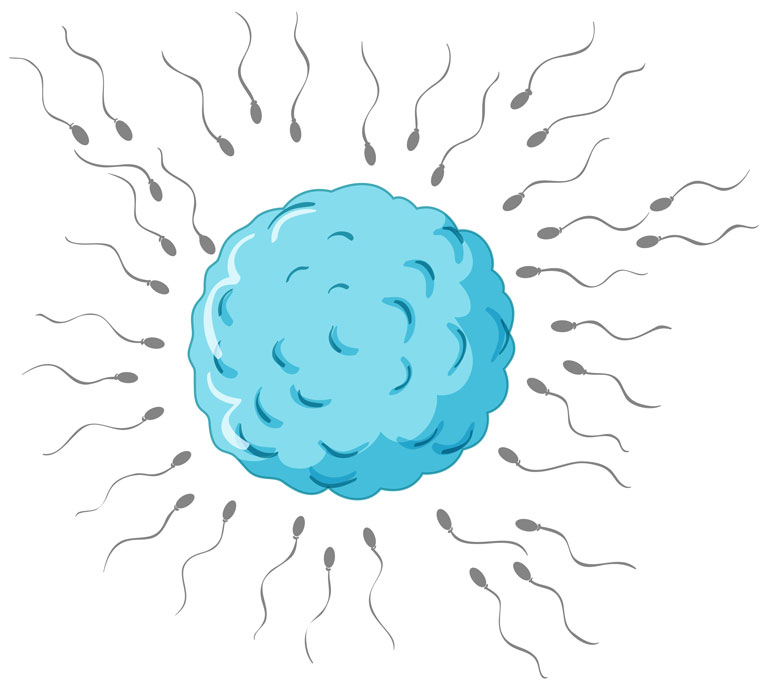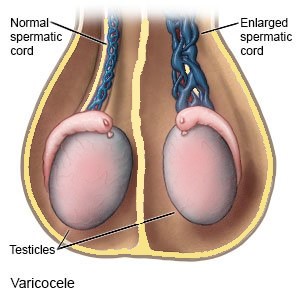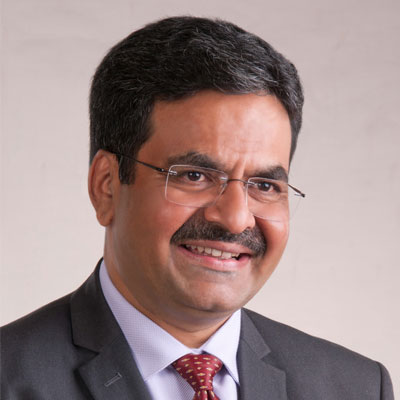Male infertility is effectively treated at Aashray with various specialized surgeries such as Vaso epididymal anastomosis (VEA), Vasal reconstruction, Varicocele ligation, and Vasectomy reversal under optical magnification.

For some couples, it is difficult to achieve pregnancy even though they've had frequent intercourse without using contraception for 1 year or longer. About 1/3 of infertility cases are due to male reproductive issues. Male fertility generally depends on the quality and the amount of sperm production. It will be difficult to conceive a child if the number of sperm ejaculated is low, or the quality of the sperm is poor. Hormone imbalance, obstructions preventing the sperm movement, genetic abnormalities, chronic health issues, injuries, lifestyle choices are some of the other factors that cause infertility in males.

Dr. Ashit Shah, the Chief Urologist, has provided guidelines as to who can receive surgical treatments for male infertility -
Following are the surgical treatment options for male infertility:
Vaso Epididymal Anastomosis (VEA) is a microsurgical procedure for obstructive azoospermia due to blockage in the epididymis. It is a technically complicated microsurgical procedure for restoring fertility in men. During the surgery, the surgeon bypasses the block so that the sperm can travel to the penis. High surgical expertise and experience of the surgeon play a critical role in performing the procedure as it involves very fine and delicate tubes.
A varicocele is an enlargement of the veins in the scrotum surrounding the testis. It is one of the most common causes of male infertility. The condition is similar to getting a varicose vein in your leg. When a varicocele develops in your scrotum, it can cause low sperm production and decreased sperm quality.
At Aashray Urology Institute, Varicocele Ligation/ Varicocelectomy is provided which is an effective treatment for varicoceles.

Varicoceles rarely produce signs or symptoms. But they do require serious attention for many reasons. Varicoceles might impair fertility, cause pain, and in the course of time get enlarged. It might also cause swelling mostly on the left side of the testicle.
A physical examination will be conducted by your doctor to check if you have varicoceles. These varicoceles can be found above your testicle which is described as a "bag of worms" because of their look and feel. The doctor often checks for varicoceles by asking the patient to be in a standing position. You may be asked to perform the Valsalva maneuver, a technique where you will be required to take a deep breath and hold it while you bear down. It lets your doctor detect any abnormally enlarged veins.
In case the physical examination result turns inconclusive, the doctor might order you to take a scrotal ultrasound test. Also, further testing might be recommended to identify other causes or symptoms for varicoceles.
Following are the different methods that can be performed to repair varicocele -
This procedure is performed by a radiologist. A tube is inserted into a vein in the groin or neck that allows the instruments to pass through. The doctor then releases coils, plugs, or a solution to block the blood flow that scars down the varicoceles. The embolization method often takes around 45 minutes to 1 hour.
Following risks are associated with varicocele ligation:
Recovery from varicocele ligation can take around 3-6 weeks for open surgery, 2-4 weeks for laparoscopic surgery, and 1-2 days for percutaneous embolization. In most cases, you can return to your work within a few days.
Vasectomy reversal is performed to re- approximate the cut ends of the vas deferens to restore the flow of sperm from the testicles to the prostate. It is a reconstructive surgery that consists of two techniques - vasovasostomy and vasoepididymostomy. After examining the fluid sample taken from the testicular end of the vas, the surgeon will make the decision which reversal technique will be performed.


Dr. Ashit Shah is a senior consultant Urologist heading Aashray Urology Institute. After completing his M.B.B.S. and M.S. in General Surgery, he was awarded Diplomate of National Board (D.N.B.) in Genito-Urinary Surgery by the National Board of Examinations, New Delhi. He earned his Diplomate in Laparoscopic Urology from Louis Pasteur University, Strasbourg, France in the year 2006. Dr. Shah has a special interest in Endo-Urology, especially Urolithiasis i.e. Urinary Stone Disease. Having spent more than 27 years in the profession of Urology, he has experience of over 75,000 urological consultations and more than 15,000 surgeries. Being counted amongst the torch bearers of ethical and transparent medical practice in the city of Vadodara, he was conferred ‘Inspiring Urologist Award’ for the year 2019 by The Economic Times.